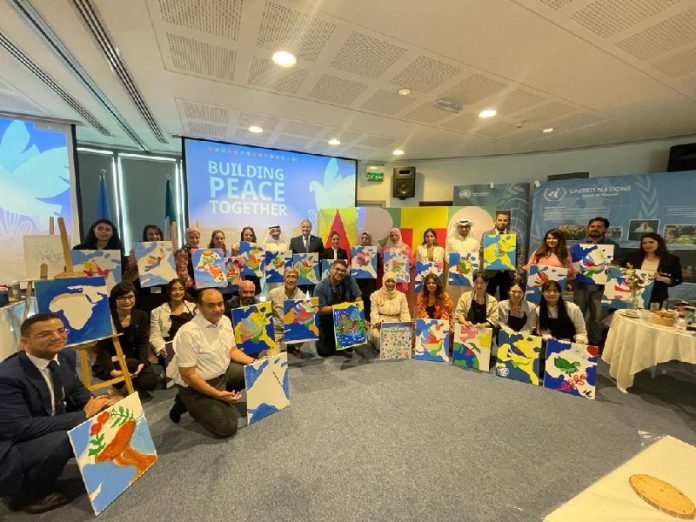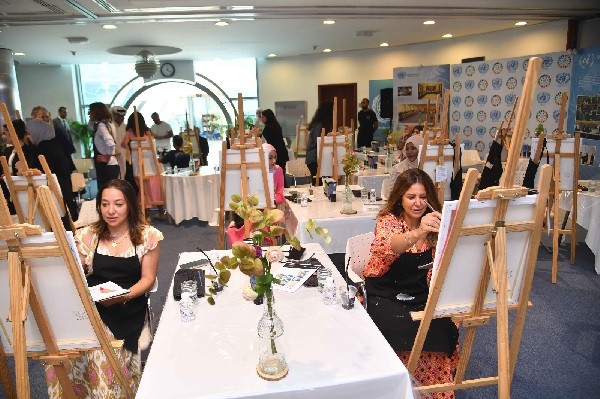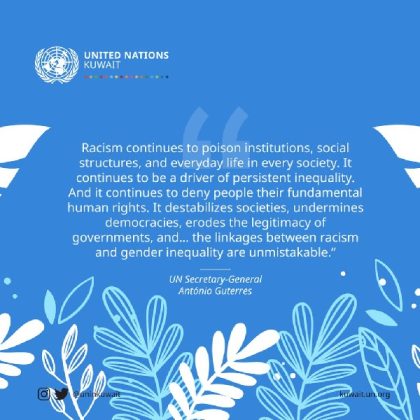Each year the International Day of Peace is observed around the world on 21 September. The UN General Assembly has declared this as a day devoted to strengthening the ideals of peace by observing 24 hours of non-violence and cease-fire. But achieving true peace entails much more than laying down arms. It requires building societies where all members feel they can flourish. It involves creating a world in which people are treated equally. This year the United Nations Kuwait will be a platform to portray the disproportionate effect of climate change on countries in crisis, instability, and lack of peace. As conflicts continue to erupt across the globe, we have seen natural disasters further the damage. As COVID-19 keeps attacking communities, we have seen water supplies decreasing. Vulnerable countries in crisis have few resources to recover from disasters, leading them to suffer the most devastating consequences of climate change.
A recent report by the United Nations Intergovernmental Panel on Climate Change spelt out the dramatic consequences of failing to curb the rise in global temperature and adapting to a hotter planet. Adaptation should address risks from climate change and extreme weather, for example, by safeguarding agriculture, managing the impact of rising seas, and making infrastructure more resilient.
Some countries face daunting costs already. Research by the IMF and others suggests public adaptation costs will reach around 0.25 per cent of global gross domestic product per year in the coming decades. While such estimates can appear manageable worldwide, they aren’t representative of the scale of the challenge faced by many vulnerable countries. Unfortunately, countries that need to adapt the most often lack the means to do so, and they typically lack the financing and the institutional capacity to implement required adaptation programs. Further, some countries most exposed to heat waves, droughts, storms, and sea-level rise often confront other pressing development needs. That means investing in resilient growth is more important than ever, with adaptation fully integrated with other sustainable development goals. People and ecosystems least able to cope are being hardest hit, said scientists in the latest Intergovernmental Panel on Climate Change (IPCC) report. Thus, climate change has a disproportionate effect on vulnerable countries.
The 2022 Global Peace Index finds that the world became less peaceful for the eleventh time in the last 14 years, with the average level of country peacefulness deteriorating by 0.3 per cent over the past year. In total, peacefulness improved in 90 countries and deteriorated in 71, highlighting that falls in peacefulness are generally more significant than improvements. At the same time, the 2021 Ecological Threat Report found over 40 million new internal displacements were reported in 2020 as a result of war, violence, and natural disasters; the greatest number in 10 years. These were largely caused by natural disasters. More than 75% were due to severe weather conditions and natural disasters, more than three times the number of internal
displacements by armed conflict and violence. Thus, as the world grows less peaceful, climate change amplifies the risks and negative consequences to peace and development.
On the 21st of September, the UN will hold the first-ever United Nations Climate Action: Race to Zero and Resilience Forum to gather heads of state and leaders of civil societies, businesses, and activists. The forum will aim to guarantee that commitments and obligations about climate change are kept and to promote the urgent, radical collaboration required to achieve global climate goals. As previously mentioned, climate change can disrupt peace and security around the world by exacerbating already present dangers to peace and development, especially to those already living in vulnerable situations.
As we are approaching UN Day with a focus on Climate Action, the United Nations in Kuwait is celebrating the strong partnership of UN agencies in collaboration with the Government and people of Kuwait in their mission for Peace and Security around the world, which at times may be disrupted due to the effects of Climate Change. Through team-building exercises, such as painting to learn about the indirect impacts of climate change, the United Nations in Kuwait aims to raise awareness within UN agencies of how vulnerable communities may experience impacts more acutely because they have less capacity for coping and fewer resources to build resilience. It is crucial to acknowledge the devastating effects of climate change on vulnerable communities; access to food, water, healthcare, and shelter may be disrupted.




























